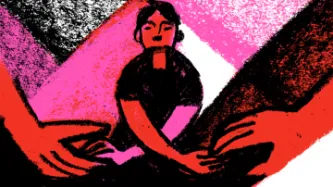Search
Content type: Examples
Civil society organisations Civil Liberties union for Europe, Open Rights Group and Panoptykon Foundation have filed complaints against Google and Interactive Advertising Bureau (IAB) member companies in Croatia, Cyprus, Greece, Malta, Portugal and Romania.
The complaints address privacy abuses arising from real-time bidding processing, and call on data protection authorities to work together in investigation the real-time bidding industry.
Content type: Examples
French data protection regulator CNIL fined Google and Amazon €100 million and €35 million respectively for breaches of the French Data Protection Act. The CNIL found that the French websites of Google and Amazon had not sought the prior consent of visitors before advertising cookies were saved on computers, and failed to provide clear information to users as to how they intended to make use of online trackers and how to refuse any use of cookies.
In relation to Google, the CNIL made an…
Content type: Examples
The US Centers for Disease Control and Prevention announced it would end screening of inbound international passengers from a group of countries including the UK, Brazil, Iran, Ireland, and the EU Schengen countries in the third week of September. CDC said it would replace the programme with new, “more effective” procedures such as better education about COVID-19, voluntary collection of contact information, recommendations for self-monitoring, and “potential” testing for COVID-19. As…
Content type: Examples
In mid-September, “human error” led Public Health Wales to post the personal data of all 18,000-odd Welsh residents who tested positive for COVID-19 between the end of February and the end of August to a public server, where for about 20 hours it was readily searchable by any visitor to the site. For 1,926 people who live in enclosed settings such as nursing homes and supported housing, the data included the name of the setting; for the rest the information consisted of initials, date of birth…
Content type: Examples
A nationwide US study plans to examine the impact on employer surveillance of the shift of workers from on-site office environments to working in their homes. The authors intend to highlight worker (dis)comfort and concerns.
Source: https://covid19research.ssrc.org/grantee/how-covid-19-is-changing-workplace-surveillance-american-workers-experiences-and-privacy-expectations-when-working-from-home/
Writer: Jessica Vitak and Michael Zimmer
Publication: Social Science Research Council
Content type: Examples
As working from home expands, employers are ramping up surveillance using the features built into software such as Microsoft Teams and Slack, which report when employees are active, or requiring employees to attend early-morning video conferences with webcams switched on. In early 2020, PwC developed a facial recognition tool to log when employees are away from their home computer screens.
Source: https://www.theguardian.com/world/2020/sep/27/shirking-from-home-staff-feel-the-heat-as-…
Content type: Examples
The US company Hubstaff, which provides monitoring software to employers, says its UK customer base quadrupled between February and October 2020. The software tracks workers’ hours, keystrokes, mouse movements, and website visits. The Chartered Institute of Personnel and Development warns that workplace surveillance can damage trust.
Source: https://www.bbc.co.uk/news/business-54289152
Writer: Lora Jones
Publication: BBC
Content type: Examples
The Citizen app, which was designed to allow users to see unverified reports of crime in their neighbourhoods, is partnering with Los Angeles County for its contact tracing app, SafePass, which uses Bluetooth and GPS to track interactions with other people. Citizen has been criticised in the past for inundating people with crime alerts and inspiring panic in times when crime rates are at a historic low, and public safety experts and lawmakers are concerned that the repurposed app could create…
Content type: Examples
While countries like New Zealand, Singapore, and South Korea publish detailed near-real-time data on local coronavirus outbreaks, the US offers very few details on how the disease is spreading due to political meddling, privacy concerns, and long-time neglect of public health surveillance systems. CDC reports are often delayed until after they can influence outcomes, a problem that has not been helped by the Trump administration’s decision to divert data from the CDC to a new $10 million system…
Content type: Examples
The UK Department of Health has hired the credit-checking company TransUnion to verify the names and addresses of people requesting home coronavirus tests, placing millions at risk of being barred from access to these tests. The government says the purpose is to prevent abuse of the public testing system; TransUnion says it does not run credit checks but uses various third-party sources, including electoral registers, to verify identities. The London Assembly, however, notes that up to 5.8…
Content type: Examples
In October UK health officials discovered that limitations on the number of rows on an older version of Microsoft’s spreadsheet software Excel led the system to miss 16,000 positive coronavirus tests and fail to alert an estimated 50,000 people who had been in close contact with them that they should quarantine. About half of the missed cases are thought to have been in northwest England, where infection rates were already rising. The government’s science advisors recommended revamping the…
Content type: Examples
The UK exams regulator, Ofqual, awarded a £46,000 contract for less than a month’s work providing “urgent communications support” to the small research agency Public First, which is owned by James Frayne, a close associate of prime ministerial special advisor Dominic Cummings, and Rachel Wolf, a former advisor to cabinet minister Michael Gove. This contract brings to more than £1 million the amount of public contracts awarded without tender to Public First. Previous directly awarded contracts…
Content type: Examples
Canada has a reputation, both at home and around the world, as a beacon of tolerance when it comes to acceptance of immigrants and refugees. Part of this is due to the favourable attitudes of Canadians on the issue. Over the decade, the balance of opinion in Canada has become increasingly positive about the number of immigrants arriving in Canada and the benefits they bring to the country’s economy.
Is the dramatic impact of the global COVID-19 pandemic, causing Canadians to reconsider their…
Content type: Video
You can listen and subscribe to the podcast where ever you normally find your podcasts:
Spotify
Apple podcasts
Google podcasts
Castbox
Overcast
Pocket Casts
Peertube
Youtube
Stitcher
And more...
And support PI's work here: support.privacyinternational.org
Content type: Examples
Hundreds of wet and cold migrants were forced to spend hours in cramped containers on a “rubble-strewn building site” after arriving in the UK on small boats, a report has revealed.
In a rare insight into how newly arrived asylum seekers are treated by authorities, prison inspectors visited Tug Haven in Dover, where migrants are first taken from the beach or sea, and found a shortage of dry clothing and other basic supplies.
Images show migrants queueing at Tug Haven surrounded by rubble and…
Content type: Examples
Foreign rough sleepers face being deported from Britain under draconian immigration laws to be introduced when the Brexit transition period ends.
Under the immigration rules to be laid before parliament and due to come into force on 1 January, rough sleeping will become grounds for refusal of, or cancellation of, permission to be in the UK.
Charities described the move as a “huge step backwards”, which would prevent vulnerable people from asking for help.
Home Office officials are said to be…
Content type: Examples
The Home Office did not discuss the decision to restart asylum evictions with local authorities, it has been revealed, despite concerns about the immediate impact on homelessness and heightened risks of coronavirus transmission.
Councils were not briefed about the change in policy before it was announced in mid-September, a freedom of information investigation by the Independent online newspaper showed, underlining that all 26 councils that responded said there had been no consultation with…
Content type: Examples
[UK] Refugees and asylum seekers are wrongly sent NHS charges for 'tens of thousands' for healthcare
NHS hospitals are wrongly sending bills for as much as “tens of thousands of pounds” to asylum seekers and refugees in Bristol - and refusing some care upfront, it is claimed.
Asylum seekers and refugees are entitled to free healthcare in the UK.
But there are numerous anecdotes of vulnerable migrants receiving enormous bills for the treatment they have received and being refused hospital care not deemed “urgent or necessary”, according to support agencies in Bristol.
Some charging letters…
Content type: Examples
Asylum seekers and trafficking victims are being forced to travel miles on public transport despite lockdown restrictions because the Home Office has said they must continue to report to officials in person.
People who are awaiting a decision on their application to remain in the UK – including modern slavery victims and torture survivors – are required to regularly sign on at a Home Office reporting location.
This requirement was temporarily suspended in March because of the pandemic…
Content type: Examples
The world is set to hit a record low for resettling refugees this year, the UNHCR, the refugee branch of the United Nations, has warned.
Figures show only 15,425 refugees had been resettled by the end of September, compared to 63,726 for the whole of 2019. In 2016 the number was eight times higher, at 126,291.The low numbers are down to the Covid-19 pandemic forcing border closures, resettlement pauses and flight cancellations.
Gillian Triggs, the UNHCR’s assistant high commissioner…
Content type: Examples
At least one immigration removal centre has already seen an outbreak of coronavirus, while detainees are left in limbo.
People who were released from detention centres at the start of the pandemic are being quietly locked up again despite the health risks and uncertainty caused by the second wave.
Detainees are having to isolate in Morton Hall detention centre after cases of Covid-19 were identified there last week, while those awaiting deportation are in limbo with flights repeatedly…
Content type: Examples
Following the Trump re-election campaign's "block" purchase of Youtube homepage ad space - known as its masthead - in early 2020, Youtube has announced that it will be “retiring” reservations for full-day advertisements on its coveted homepage ad spot beginning in 2021, a change it said it communicated to advertisers earlier this year.
Instead, advertisers will only be able to buy that spot on a per-impression basis, making it harder for a single advertiser to dominate the…
Content type: Examples
The Trump re-election campaign reportedly purchased advertising space on the Youtube homepage for early November, ensuring that Trump-affiliated political ads will be featured prominently on the platform prior to Election Day on November 3rd.
Ads on the Youtube masthead (as the video on top of the homepage is known) benefit from wide exposure and visibility. While the amount spent by the Trump campaign in Youtube advertising in the key dates prior to the election is unclear, masthead…
Content type: Examples
On Election Day, there were some reports of Facebook users not seeing the "Why am I seeing this ad" information tab on political ads appearing on their newsfeeds.
Affected users were shown an error message stating "You can't use this feature right now. We limit how often you can post, comment or do other things in a given amount of time in order to help protect the community from spam. You can try again later. If you think this doesn't go against our Community Standards let us know…
Content type: Examples
Less than a week before the election, the Democratic Party reported that Facebook's social media advertising systems had prevented the campaign from running some ads, allegedly resulting in the loss of more than $500,000 in potential campaign donations.
According to Facebook, the flaws resulted from a change in its political ads policy for the final week of the campaign. The policy change was intended to prevent political advertisers from uploading new ads in the week…
Content type: Case Study
Por favor describe brevemente tu trabajo y/o activismo y las temáticas y cuestiones que ahí abordas.
Yo soy investigador en una organización dedicada a temas relacionados con la defensa del territorio y protección ambiental. Operamos en diferentes regiones, incluyendo regiones que han sido históricamente violentadas por temas del conflicto armado y que recientemente experimentan un pico en diferentes tipos conflictos ambientales. Nuestro trabajo consiste en…
Content type: Case Study
Centro Prodh es una asociación sin fines de lucro que promueve los derechos humanos, y que ha acompañado algunos de los casos más emblemáticos en México. Quizá a raíz del impacto positivo de su trabajo, el centro se ha visto enfrentado a riesgos serios de vigilancia. En su declaración de fin de misión después de una visita a México, el anterior relator especial de la ONU sobre la situación de los defensores de derechos humanos, expresó preocupación en relación al Centro…
Content type: Examples
After a two year investigation into credit referencing agencies (CRAs) Experian, Equifax and TransUnion - initiated in part pursuant to a complaint filed by PI against Equifax and Experian in November 2018 - the ICO has published a report finding "widespread and systemic data protection failings" in the data broking sector. Pursuant to its investigation, the ICO issued an enforcement notice against Experian, requesting the company to achieve compliance with data…
Content type: Case Study
Sebastián Gómez is a land rights defender. He is based in Colombia.
Qn: Please briefly describe your work and the issues/topics you work on.
I am researcher for an organisation working on topics related to the defense of the territory and environmental protection. We operate in different regions, including those which have been historically subjected to violence due to the armed conflict and which are now experiencing a spike in a range of environmental conflicts. Our work consists of…
Content type: Case Study
amaBhungane is an independent, non-profit newsroom based in South Africa. amaBhungane plays a key role in exposing corruption, promoting transparency and accountability at all levels of government. In recent years, amaBhungane has been at the forefront of privacy litigation in amaBhungane Centre and Sole Stephen v. Minister of Justice and Correctional Services and others, a challenge to South Africa’s expansive surveillance laws.
Qn: Please briefly describe your work and the issues/…



